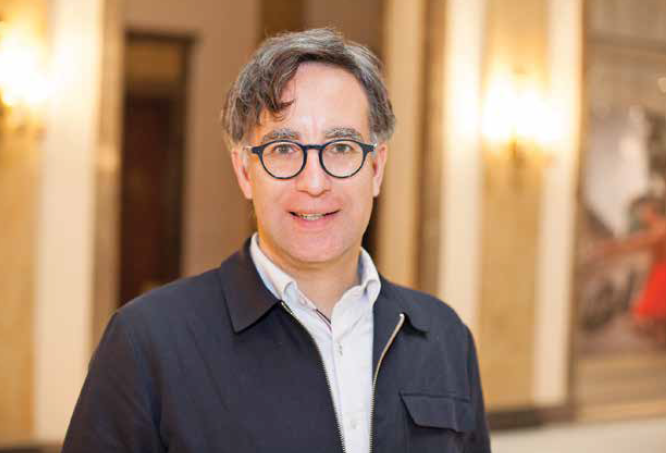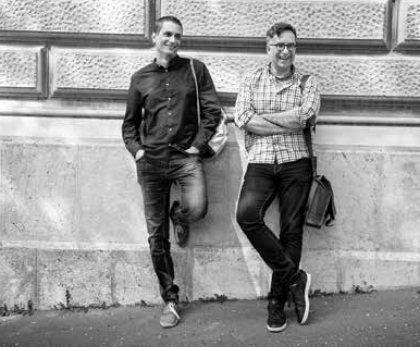Every year, Bitef faces its own paradox – institution and subversion. Regarding the latest edition, this means thinking about authoritarian regimes, populism, racism and death as anxiety, vexation and thinking and acting instinct that is artistically provocative, gentle, spiritually healing and above all free. By being critical towards Europe and Russia, the 52nd Bitef plans to thoroughly examine the right-wing and populism issues while building its own, complex and comprehensive view of the problems that disturb and affect us.

Is there enough room in today’s Belgrade, which is losing its toponyms fast, for Bitef to breathe and think freely?
The air is getting heavier both here and abroad compared to the 1960s when Bitef came into existence. It is not conducive to the space of freedom, risk, criticism, experiment and thoughtful provocation, all of which have been Bitef’s guidelines since its establishment. However, because of this, the mission of our festival now becomes even more important. By adapting to this period to a certain degree, Bitef has to remain true to itself and in the ocean of false innovation and revolutions, continue searching what is socially and artistically real and to progress which, essentially, disturbs the status quo. If we are not providing answers, at least we are asking the right questions.
This year, as a part of the strategy for development of culture and creative industry in Serbia, the cabinet of the Serbian Prime Minister, Ana Brnabic has recognized Bitef as one of the most import cultural brands. How should and how could the state and subversive culture cooperate?
The cabinet came to us, which, in itself, is an important gestures, and asked how could they help the institution that it recognizes as “one of the most important cultural brands in the country”. We have explained to them that we have a huge problem with not being able to financially plan long-term and that we depend on annual competitions. After the success of last Bitef, we received fantastic offers for co-production from the leading world theatres and festivals, including Vidy from Lausanne or Theatre de la Ville from Paris to which we cannot respond since we don’t know what funding we are going to have in 2019, 2020 and onward. The Prime Minister and her associates were very understanding, so we are all working on resolving problem, and we are very thankful to them for doing so.
Bitef’s position is rather paradoxical because the festival is both an institution and subversion at the same time. In the 1960s, the City of Belgrade founded the festival and since then we have been regularly receiving funding from the Ministry of Culture. Our mission is to artistically, socially and politically provoke, disturb and change. This has been a complex endeavour since the very beginning of Bitef and it remains so to this day. After all, that has been the position of critical culture throughout history. Bitef is a very unique form of the so-called “high culture” because it does not cater to traditional or commercial values, but it rather provokes these values with radical and subversive forms. The festival does not do this out of exhibitionism and self-sufficiency, but on the contrary, to implement the widest possible social and cultural emancipation. Maybe I am an idealist from a bygone era, from the social-democratic view of liberalism, but I still think that culture and art should fight for the state and other centres of political and financial power to support the production that critically questions these very centres, despite the difficult times we live in.

Last year, when criticized by right wing, you said that as long as you are at the helm of Belef, the festival will be an elitist form of art for all. What reactions do you expect this year when the festival is focusing on right-wing populism, xenophobia and racism?
Yes, my main motto is the famous oxymoron of the great director Antoine Vitez – “elitist culture for all”. What this means is that we should find ways, through forum programmes, accompanying materials, and marketing campaigns, to bring closer radical theatrical productions and forms to wider audiences and to break down their prejudices for the sake of the aforementioned general emancipation. We are trying to show to potential audience that the topics covered by this year’s Bitef like authoritative regimes (“non-liberal democracies”), the rise of right-wing extremism and populism, xenophobia, and even an intimate topic like death, should not be disturbing and depressing to us, but rather move us to think and act which is something that they do and should do anyway. These topics can be covered in an artistically appealing way, they can be humorous but also soft, and give the feeling of peace and comfort. In terms of the reactions, as usual, I expect them to be “unprincipled”. If the EU is the subject of criticism, some people will be satisfied and some critical. However, this all takes a 180-degree-turn when Russia is the subject of criticism. This, by all means, does not mean that we treat the situation in these two environments differently, but rather we are offering a complex and comprehensive critical view that hints at our viewpoint. For instance, the criticism of the situation in the EU countries, the way it is shown in the play Suite no. 3: Europe, that is going to open the 52nd Bitef, is all about a clever warning that, under the right-wing extremism, Europe is betraying the values on which it was founded.
What do plays that you picked make “authentically Bitef-like”, apart from focusing on the topics that are troubling Europe?
On one hand, being authentically Bitef-like means exactly what you have just said – speaking openly about the burning issues in our world. On the other hand, this means recognizing and underlining those artistic forms that are not necessarily “new”. We have said many times before how questionable this modernistic approach. However, these artistic forms, at least in some countries (like ours), still have a subversive and experimental effect, as well as, above all, an emancipative one too. In my opinion, being authentically Bitef-like means to always be open to all cultures, not only those that are most present or most influential. This year, again, we are going to have plays from France, Belgium, Germany and Switzerland, but also from Israel and Estonia. The Belgium play Requiem for L. is going to take us on a trip to African cultures too.
Speaking about theatrical expression, what is considered radical and subversive today, and what unfounded exhibitionism. How equipped are Bitef and Serbian audiences to differentiate between the two?
This is a very difficult but important question. First and foremost, I think that these properties – radical, subversive and similar – cannot be viewed globally and universally but rather in a given cultural context. For instance, it is natural in the Western culture for art installations to be classified under performance and visual art, but in our culture, and especially in mainstream, that is still not the case. Hence, artistically speaking, the biggest provocation of the 52nd Bitef will be the fact that three out of ten plays have no actors or performers. These installations, although large and very demanding production-wise, could be placed in galleries or alternative locations, but we insisted that all of them should be placed on Bitef’s theatre stages. By doing so, we are expressing a clear attitude which says “yes, this is theatre too”. Installations, like a theatre without actors, at the theatre festival, are not exhibitionist, but rather highlighting the wider notion of what theatre is.
How difficult was to pick these 10 plays? Do you think that the society we live in, both globally and locally, has produced a bigger and more relevant theatrical challenge? Does it come from the workshops of the established theatre masters or from young and upcoming crowd?
Bitef’s dramatist, Filip Vujošević and I pick the plays after we closely monitor global production. We select the plays as the possible platforms for thematic and esthetic aspects of the concept. I insist on having both of these aspects satisfied. This year, the theme is criticism of the rise of right-wing populism, and the esthetic aspect is installation art. Once you define the concept, which is the hardest part of the job, then it is easy to add to it and to branch it out. I am not a fan of generational divisions. At the 52nd Bitef, we have plays by the global bards such as Alain Platel, as well as by very young artists whom Bitef has discovered like the Israeli Nadav Barnea.
The three Bitef plays will have no performers. Do you think that theatre could become automated in a way that robotization is conquering workforce?
No, theatre cannot become automated. Installations are an important segment of visual and performance art, but still, they are a very special and segmented part. The power of theatre has always lied and will lie an emotional, physical, mental and spiritual meeting and exchange between different actors here and now.